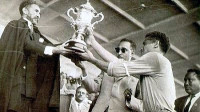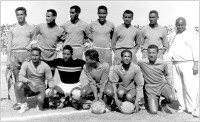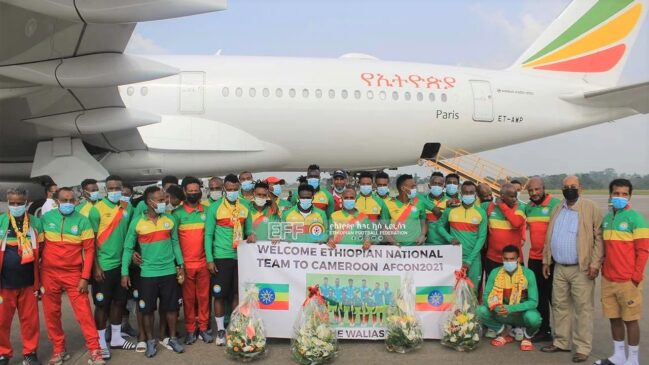A Flashback To When Ethiopia Were Champions Of Africa
 About a week ago in history, the remaining remnants of Cote d’Ivoire’s footballing golden generation finally delivered on the big stage and defeated Ghana to win their second African Cup of Nations title. It was the end of a long 23 year drought for Ivorian football fans, who celebrated the return of the AFCON trophy to Abidjan for the first time since 1992.
About a week ago in history, the remaining remnants of Cote d’Ivoire’s footballing golden generation finally delivered on the big stage and defeated Ghana to win their second African Cup of Nations title. It was the end of a long 23 year drought for Ivorian football fans, who celebrated the return of the AFCON trophy to Abidjan for the first time since 1992.
When the AFCON trophy will return to high altitude Ethiopia and be paraded in the streets of Addis Ababa is unknown. But lest we forget the glorious triumph of 1962, I’ve put this piece together in honour Ethiopia’s own golden generation:
Indeed it’s been 53 years since that glorious night in Addis Ababa, when Ethiopian football was at the summit of African football. The Ethiopian Football Federation had been a founding member of the Confederation of African football (CAF), but Ethiopia’s contribution to the continental game wasn’t limited to administrative duties. In the sixties, the Walyas were blessed with a star studded lineup of eye catching talent, among the best footballers in Africa. At a time when foreign contracts with European clubs weren’t as lucrative or salivated over the way they are in the modern game, Ethiopia’s top talents rejected offers to play football abroad. Being a famous sportsman in Addis during the swinging sixties did have its perks. The Emperor Haile Selassie, buoyed over the successes achieved by the national team, awarded players with plots of land, businesses, money you name it.
 The fame and wealth of the stars, coupled with the relative strength of the local game meant that a move away must have been seen as a loss more than anything else. Hence why the legends of Ethiopia’s golden period in football, have in general, remained relatively unrecognized and sadly somewhat forgotten. Never having gotten the chance to mesmerize European audiences, the likes of Mengistu Worku and Luciano Vassalo, stars of an era, will forever lag far behind their fellow countrymen Mamo Wolde and Abebe Bikila when it comes to international recognition.
The fame and wealth of the stars, coupled with the relative strength of the local game meant that a move away must have been seen as a loss more than anything else. Hence why the legends of Ethiopia’s golden period in football, have in general, remained relatively unrecognized and sadly somewhat forgotten. Never having gotten the chance to mesmerize European audiences, the likes of Mengistu Worku and Luciano Vassalo, stars of an era, will forever lag far behind their fellow countrymen Mamo Wolde and Abebe Bikila when it comes to international recognition.
Yidnekatchew Tessema is forever credited with his role in the formation of CAF and the development of the continental game. Having served as President from 1972 until his death in 1987, his ideas, energy and dedication have been well noted in African football circles as being the driving force of African football during a poignant time in history and was in engaged in confronting racism head on with the South African apartheid regime’s refusal to allow black players to play international football. Yidnekachew gallantly spearheaded the continent’s bid to reach footballing relevance. But his administrative service have somewhat overshadowed his success as a member of the national team, specifically his coaching Ethiopia to the 1962 AFCON title.
Read more at: eHahu.com



